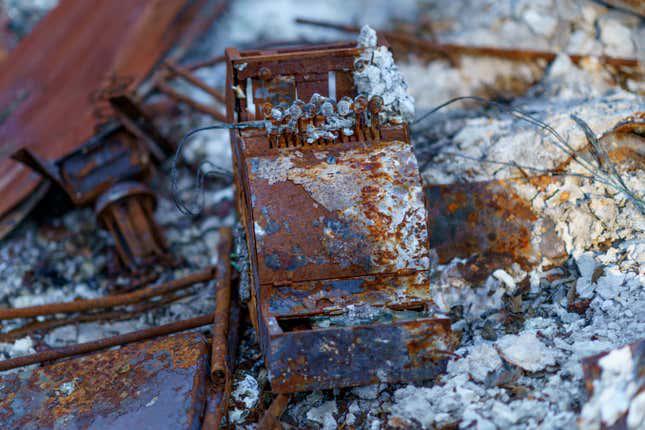Grenfell Tower cladding haunts UK residents - Dispatch Weekly
April 26, 2019 - Reading time: 4 minutes

A survey found that people who live in tower blocks wrapped in combustible cladding such as the one that was wrapped up in Grenfell Tower are more prone to mental health suffering with depression whilst others are turning to alcohol and drugs. UK Cladding Action Group asked people living with flammable cladding how it affects them. ‘I genuinely believe nothing will be done until we have a second tragedy in a private block,’ one respondent said.
Another wrote: ‘It has been the worst 21 months of my life. I am struggling to get through each day.’ One resident said: ‘I have been suffering from insomnia at night and then been very tired in the day which has negatively affected my productivity at work, which then raises my anxiety levels.’ The survey found that 64.8 per cent of residents said their mental health has been ‘hugely affected’ by the cladding crisis.
The Fire Brigades Union says that almost two years after the Grenfell Tower disaster, residents in tower blocks still feel unsafe, and the flammable cladding still covers hundreds of residential buildings. The cladding has been removed from 29% of social housing and 9 % of private housing. Official figures show that combustible cladding has been removed from 10 of the 176 private blocks found to be at risk, said the FBU. Freeholders, developers and the government continue to refuse to fund repairs.
In a snapshot survey answered by nearly 200 owners in 21 buildings, 127 people told UK Cladding Action Group (UK CAG) that their mental health had been “hugely affected” by the cladding problems, 160 complained of stress and 50 said they had sought medical help as a direct result of the situation.
Seventy-five people said they had turned to alcohol and seven people to drugs as a result of the stress and 17 people said they had had suicidal thoughts or feelings of self-harm.
“My mental health is at breaking point,” said Katie Peate, 28, who bought her flat there for £220,000 and now fears it could burn down at any time. “It’s the last thing I think about at night, I dream about it and it is the first thing I think about in the morning.” She and her partner had put plans to try for a baby on hold, because of the financial uncertainty.
Testimonies gathered by UK CAG included:
“I genuinely believe nothing will be done until we have a second tragedy in a private block … I feel constantly stressed, anxious, depressed, lost, abandoned and devastated.”
“I am struggling to get through each day. Gone is the enjoyment of life.”
“I worry about it daily and now am in counselling because of stress and anxiety. I wake up every night worrying about everything.”
“These figures reveal nothing short of a mental health crisis among residents of these buildings,” said William Martin, a member of UK CAG and a resident of the affected Metis building in Sheffield.
The residents have given ministers a deadline of 14 June, the second anniversary of the Grenfell disaster. Their campaign is being backed by the survivors and bereaved group, Grenfell United as well as Labour and Conservative MPs, the Chartered Institute of Housing and Richard Leese, the leader of Manchester city council.
City Gate apartment block with cladding and wood panelling. Photograph: Joel Goodman/The Guardian
Brokenshire said he understood the “anguish faced by those who continue to live in buildings with ACM cladding” and said the government was “looking at a range of new additional measures to get building owners to do the right thing and get on with it.”
He added: “I am considering at pace additional interventions to see that progress can be made more swiftly so that residents can feel safe in their homes.”

DW Staff
David Lintott is the Editor-in-Chief, leading our team of talented freelance journalists. He specializes in covering culture, sport, and society. Originally from the decaying seaside town of Eastbourne, he attributes his insightful world-weariness to his roots in this unique setting.




